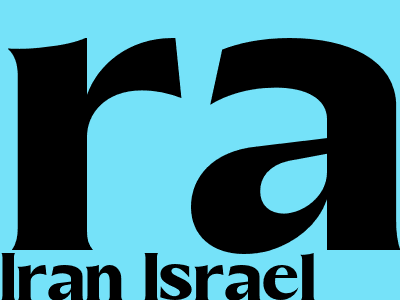
Unraveling the Tensions: Iran and Israel's Complex Rivalry
Historical Roots of Conflict
The animosity between Iran and Israel stems from a tapestry of historical, political, and religious factors.
Iran's 1979 Islamic Revolution, led by Ayatollah Ruhollah Khomeini, established a theocratic government opposed to Western influence and Israel's existence.
Israel, established in 1948, has faced persistent threats from neighboring Arab nations, including Iran, exacerbating regional tensions.
Political and Ideological Differences
Iran's Shia Muslim majority holds different religious beliefs from Israel's predominantly Jewish population.
These religious differences have fueled political divisions, with Iran supporting Palestinian groups opposed to Israel.
Israel, on the other hand, fears Iran's nuclear ambitions and its close ties to Hezbollah, a Lebanese militant group.
Regional Power Struggle
Iran has sought to expand its influence in the Middle East, posing a perceived threat to Israel's security.
Israel's military capabilities and technological advancements have made it a formidable regional power, further straining relations.
Both countries compete for influence in Lebanon, Syria, and the broader region, fueling tensions and potential conflict.
Shadow Wars and Proxy Conflicts
Iran and Israel have engaged in covert operations and proxy wars, often through support for opposing factions in regional conflicts.
Iran has provided financial and military aid to Hezbollah and other anti-Israel groups, posing a security threat to Israel.
Israel has reportedly carried out airstrikes in Syria targeting Iranian-backed forces and weapons shipments.
International Diplomacy and Negotiations
International efforts to resolve the conflict have faced challenges, including the lack of direct diplomatic relations between Iran and Israel.
The 2015 Joint Comprehensive Plan of Action (JCPOA), aimed at curbing Iran's nuclear program, created temporary space for dialogue.
However, the 2018 U.S. withdrawal from the JCPOA and the subsequent re-imposition of sanctions on Iran have further complicated negotiations.
Prospects for the Future
The future of Iran-Israel relations remains uncertain, with both sides entrenched in their positions.
Regional tensions and the potential for military confrontations continue to overshadow prospects for a peaceful resolution.
Sustained diplomatic efforts, confidence-building measures, and international support are crucial for reducing hostilities and fostering stability in the Middle East.